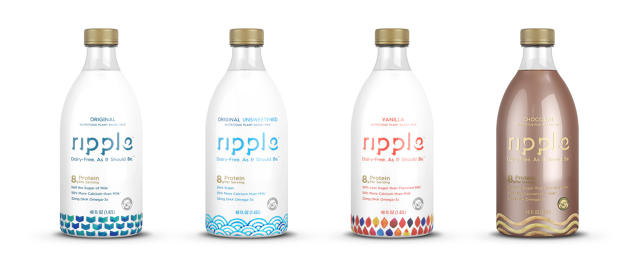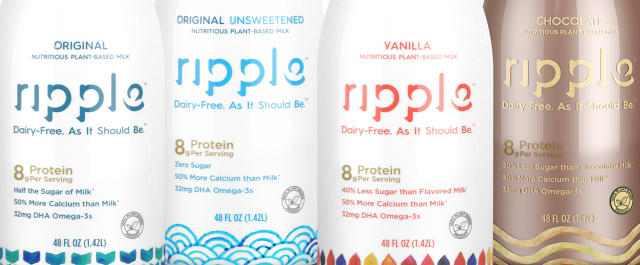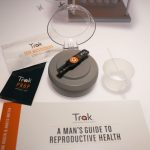This Pea-Based Milk Is Healthier Than Almond Milk, And Actually Tastes Almost Like Milk
After building Method, the sustainable soap brand, into a $100 million-plus business, cofounder Adam Lowry probably could have retired. Instead, he tackled a new problem: the unsustainability of milk.
Dairy has a massive carbon footprint, and a single gallon of milk takes 1,000 gallons of water to produce. Plant-based alternatives, from almond milk to coconut milk, are gaining in popularity, but they have issues of their own. So his new company Ripple is using another unusual ingredient—peas—instead.
“It’s a lot more like dairy milk than any other dairy-alternative milk on the market,” says Lowry.

It’s creamy, sweet, and—don’t worry—tastes nothing like peas. It’s also healthier than some alternatives. While almond milk—which Mother Jones once described as a “jug of filtered water clouded by a handful of ground almonds”—has only a gram of protein, the new pea-based milk has eight grams, the same amount as milk from cows. Ripple’s milk also has more potassium and vitamin D. Compared to dairy milk, it has a third of the saturated fat and 50% more calcium.
Making milk from peas also has a substantially smaller carbon and water footprint. While almonds are grown in California’s drought-stricken Central Valley, with heavy doses of both irrigation and fertilizer, peas are mostly grown in the upper Midwest without the need for much of either. Ripple has calculated that its milk takes 96% less water to make than almond milk, 99% less than dairy milk, and 76% less than soy milk. The carbon footprint is 93% smaller than dairy.

It took a year to turn peas into something delicious. “The primary challenge is one of flavor,” Lowry says. “If you just make pea milk the way that you make almond milk, with regular yellow peas, you can get a very high protein beverage, but it frankly tastes terrible. That’s because if you put a lot of peas in the milk, it’s going to taste like peas.”
The startup company developed a technology, now in the process of patenting, that can “separate the good stuff from the peas from all of the stuff that kind of gives it that off-flavor and color,” he says. The resulting milk still has all of the protein, but the pea taste is gone. Ripple will be available at Whole Foods starting May 2, and then will expand from there. It will retail for $4.99 for a 48 ounce bottle.
For Lowry, who spent 16 years building Method into the largest green cleaning company in the world, it was time for a different challenge. “I want to create as much good through business as I can in my career,” he says. “And there comes a point at which in order to do that it makes sense to build another thing that creates social and environmental benefit, in addition to the thing that you’ve created. That was really the motivation behind it.”
Peas: Brilliance via Shutterstock
(66)













